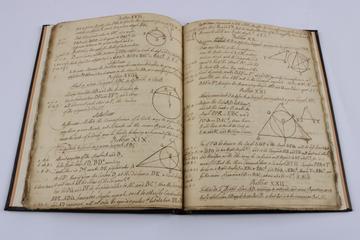
Simpson, Thomas 1710 - 1761
- Nationality:
- English; British
(1710-1761), mathematician
Thomas Simpson was born on the 20th August 1710 in Market Bosworth, Leicestershire. The only formal education he seemed to receive was from a Richard Smith in a school at Market Bosworth. He moved to Nuneaton, Warwickshire, where he took up the profession of a schoolmaster. He taught himself mathematics- in eighteenth-century Britain many mathematicians were self-trained.
By 1736 Simpson was in London, where he continued to work, as a weaver and as a teacher of mathematics. He resided at Spitalfields where he was a tutor at the famous Mathematical Society. In 1737 he published 'A New Treatise of Fluxions'. This was a high-quality textbook devoted to the calculus of fluxions, the Newtonian version of the infinitesimal calculus. The topic was advanced for the 1730s, when the calculus was mastered by only a few mathematicians in Europe.
Simpson also gained a broader reputation as a mathematician by answering some questions in the Ladies' Diary, a mathematical periodical where the British philomaths proposed and answered problems. His answers were published from 1736 under pseudonyms such as Marmaduke Hodgson, Hurlothrumbo, Kubernetes, Patrick O'Cavannah, and Anthony Shallow. He also contributed to the Gentleman's Magazine in 1736–8, to Miscellanea Curiosa Mathematica in 1745–6, and to the Gentleman's Diary in 1746. From about 1753 to 1760 he was editor of the Ladies' Diary.
In 1743 Simpson was appointed assistant to the chief master of mathematics at the newly formed Royal Military Academy at Woolwich, thanks to the recommendation of Martin Folkes, president of the Royal Society, and perhaps also of William Jones (1675–1749). This remained his position until his death. He was elected FRS in 1745 and in 1758 fellow of the Academy of Sciences in Stockholm. Simpson was a prolific writer. His most important works are the Doctrine and Application of Fluxions (1750), Mathematical Dissertations (1743), and Miscellaneous Tracts (1757). Simpson also contributed several papers to the Philosophical Transactions of the Royal Society.
Simpson married his landlady at Nuneaton, a widow named Swinfield. They had two children, Elizabeth, born in 1736, and Thomas, born in 1738. He died at Market Bosworth, Leicestershire, on 14 May 1761.